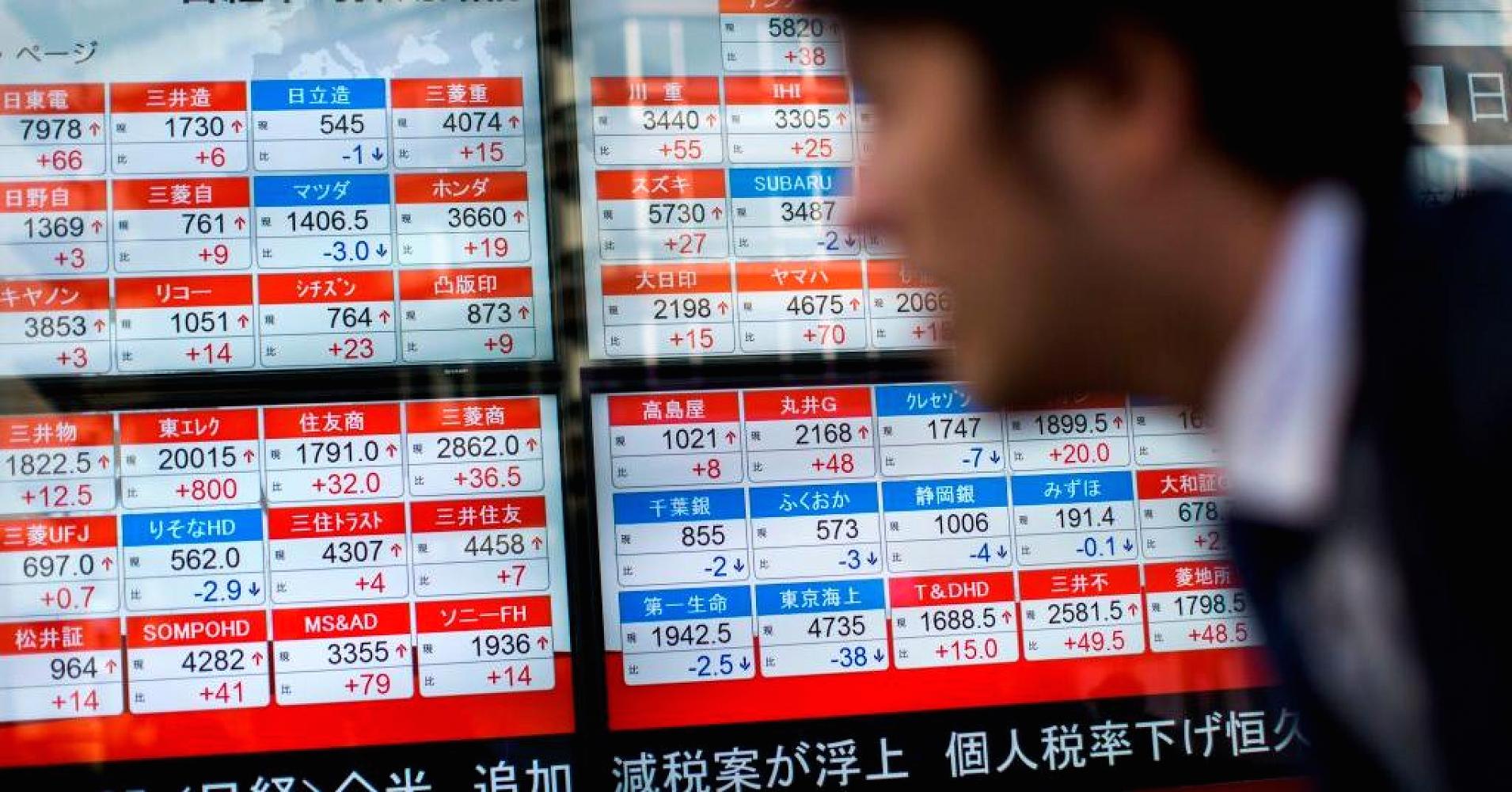
Asian stocks closed mixed on Wednesday, with several regional markets giving up early gains after recent trade fears waned in the last session.
In Tokyo, the Nikkei 225 slipped after closing higher in the past two sessions. The index closed down 0.49 percent, or 107.22 points, at 21,687.10. Financials, oil producers and shippers gained, but declines were seen in consumer goods sectors.
Across the Korean Strait, the Kospi finished lower by 0.27 percent at 2,444.22 as gains seen earlier in the day fizzled out while the junior Kosdaq advanced 0.92 percent.
Greater China markets traded higher, with Hong Kong’s Hang Seng Index tacking on 0.53 percent by 3:02 p.m. HK/SIN on the back of gains in the energy and materials sectors. Ahead of the market close, the index was off its intraday high of 31,021.12 seen earlier in the day.
The Shanghai composite rose by 0.56 percent to 3,208.32 and the smaller Shenzhen composite added 0.53 percent to end at 1,850.97.
Meanwhile, in Sydney, the S&P/ASX 200 shed 0.48 percent to finish at 5,828.70 as most subindexes closed in the red, although energy and materials rose. The heavily weighted financials sector slid 0.96 percent.
Sharp gains seen overnight on Wall Street failed to translate during the Asian session, with markets in the region little changed on the whole. MSCI’s broad index of shares in Asia Pacific excluding Japan was last off by 0.02 percent.
The overnight pick up in investor confidence wavered slightly on Wednesday.
While Chinese President Xi Jinping’s Tuesday trade comments were a positive development, they were unlikely to instantly solve recent U.S.-China trade tensions, said Shrikant Bhat, managing director and regional head of investments at Citi.
“It’s going to take a while to negotiate. It’s not a quick fix, it’s going to take three to six months before everything gets resolved,” Bhat told CNBC’s “Street Signs.”
Asian and European markets had rallied on Tuesday after traders saw hope of avoiding a trade war in Xi’s remarks about further opening up China’s economy. The policy plans outlined by Xi included reducing tariffs for autos and improving intellectual property rights protection.
Those comments, which allayed some fears of a U.S.-China trade war, boosted market sentiment in the last session, even though analysts said the measures highlighted by Xi were largely in line with his previous policy messaging.
“Seeing is believing of course … but for now the market chooses to believe that Xi’s words will prove to be more than mere platitudes in coming months,” Ray Attrill, head of foreign exchange strategy at National Australia Bank, said in a note regarding stocks’ overnight advance.
Against the safe-haven Japanese currency, the dollar pared some gains made against the yen amid the improvement in investor confidence overnight. The dollar traded at 107.03 at 2:47 p.m. HK/SIN.
The Australian dollar pared some of its overnight gains after gaining in the last session on the pick up in market sentiment. The Aussie dollar last traded at $0.7747.
The currency largely shrugged off China consumer inflation easing last month. Reuters reported that China’s consumer price index in March came in at 2.1 percent, below the 2.6 percent gain expected.
Meanwhile, the dollar index, which tracks the dollar against the six currencies, extended losses to trade at 89.502 as the greenback slipped further against the euro.
On the commodities front, oil prices edged lower after jumping more than 3 percent in the previous session.
U.S. West Texas Intermediate shed 0.26 percent to trade at $65.34 per barrel and Brent crude futures were off by 0.41 percent at $70.75.
In individual stocks, shares of Japan’s SoftBank Group bounced 3.45 percent after news that Sprint, which is owned by SoftBank, has embarked once more on merger talks with T-Mobile. The latest attempt comes after Sprint and T-Mobile ended merger talks in November.
On the economic front, China’s central bank said it would roll out several measures aimed at opening up the country’s financial services sector by year-end. The People’s Bank of China also said it would increase “foreign ownership limits to 51 percent in securities, fund management, futures and life insurance companies over [the] next few months,” Reuters reported.
Also of note, Japan core machinery orders rose 2.1 percent in February compared to the month before, topping a median forecast of a 2.5 percent drop in a Reuters survey.
Ahead, markets await the release of U.S. CPI and minutes from the Federal Reserve during U.S. hours.

